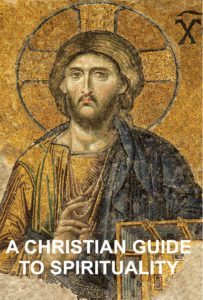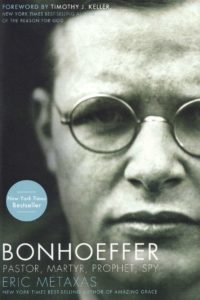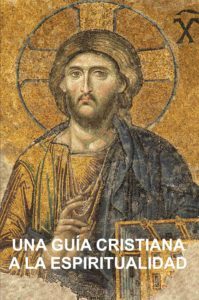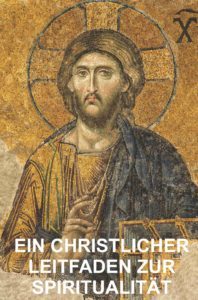Stephen W. Hiemstra's Blog, page 113
June 27, 2021
Oración Dia 32
Por Stephen W. Hiemstra
Padre Todopoderoso, el gran «yo soy» (Ex. 3:14).
Nos has creado a Tu imagen; nos has imbuido con Tu belleza.
Refugias nuestros corazones y mentes de ídolos que desean cogernos en una trampa y robarnos de la dignidad y la protección de Tu imagen divina.
Ayúdanos a mantener Tu imagen sagrada y santa.
Fortalece nuestra fe en el poder del Espíritu Santo.
En el nombre de Jesús oramos, Amén.
Oración Dia 32
Ver también:
Prefacio de La Guía Cristiana a la Espiritualidad
Otras formas de participar en línea:
Sitio del autor: http://www.StephenWHiemstra.net
Comprar Libro: http://www.T2Pneuma.com
Boletín informativo: http://bit.ly/Bug_Begone
The post Oración Dia 32 appeared first on T2Pneuma.net.
Gebetstag 32
Vor Stephen W. Hiemstra
Allmächtiger Gott, Groß Bin Ich (Exod 3:14).
Du hast uns nach deinem Bild erschaffen; du hast uns mit deiner Schönheit erfüllt.
Schütze unsere Herzen und Gedanken vor Götzen, die uns verführen, die Würde und den Schutz deines göttlichen Bildes zu stehlen.
Hilfe uns deiner Bild fromm und heilige zu halten.
Halte unseren Glauben stark an die Kraft deines Heiligen Geistes.
In Jesu Namens, Amen.
Gebetstag 32
Siehe auch:
Einleitung auf Ein Christlicher Leitfaden zur Spiritualität
Andere Möglichkeiten, sich online zu engagieren:
Autoren Seite: http://www.StephenWHiemstra.net
Herausgeber Seite: http://www.T2Pneuma.com
Mitteilungsblatt: http://bit.ly/Bug_Begone
The post Gebetstag 32 appeared first on T2Pneuma.net.
June 25, 2021
Make No Images (Second Commandment)

You shall not make for yourself a carved image, or any likeness of anything that is in heaven above, or that is in the earth beneath, or that is in the water under the earth. You shall not bow down to them or serve them, for I the LORD your God am a jealous God, visiting the iniquity of the fathers on the children to the third and the fourth generation of those who hate me, but showing steadfast love to thousands of those who love me and keep my commandments. (Exod 20:4-6; Deut 5:8-10)
By Stephen W. Hiemstra
Did you ever wait until the second time your mother called (as if her intent were unclear) before responding? Why? Repetition implies emphasis. In Hebrew poetry we see a special kind of repetition where the first and second sentences say the same thing just in different words. A good example of a Hebrew doublet is found in Psalm 115, where we read:
“Our God is in the heavens; he does all that he pleases.Their idols are silver and gold, the work of human hands. They have mouths, but do not speak; eyes, but do not see.” (Ps 115:3-5)
The comparison is between God, who is alive (lives in heaven; does what he pleases), and idols, which are not alive (made of metal by humans; have silent mouths and useless eyes).
The problem of idol worship runs deep in the human psyche. An idol is anything that we treat as more important than God. And we have many such things—family members, friends, work, school, political leaders, pop stars, sports heroes, philosophies, bank accounts, insurance policies, health plans—the list is endless.
Louie Giglio (2003, 113), a Christian musician, says that if you want a list of the idols in your life, ask where you spend your money, your time, your energy, and your loyalty. Check out your priorities and you will find the idols that threaten your faith, your mental health, and, perhaps, your life.
The second commandment is not about God’s vanity. When we put our faith in idols, we set ourselves up for a hard fall. All idols eventually break and, when they do, we break with them. The outcome of our brokenness often results in depression, addiction, or suicide; collectively, it results in oppression, injustice, and war.
The obsession in our society with work and “having it all”, for example, leads us to abuse our own health and to undervalue anyone who does not work. Instead of valuing time with our family, we refuse to use our vacation leave and we return to work even before we have to. Instead of relaxing or exercising when we are off from work, we bring work home and make poor food choices. Instead of seeing our young people and senior citizens as created in the image of God, we see them as “dependents” who do not work. It is not surprising, therefore, that they develop self-image problems and depression, or worse.
Substitutes for the living God’s role in our life are cheap imitations.
References
Giglio, Louie. 2003. The Air I Breathe. Colorado Springs: Multnomah Press.
Make No Images (Second Commandment)
Also see:
Preface to A Christian Guide to Spirituality
Other ways to engage online:
Author site: http://www.StephenWHiemstra.net
Purchase Book: http://www.T2Pneuma.com
Newsletter: http://bit.ly/Bug_Begone
The post Make No Images (Second Commandment) appeared first on T2Pneuma.net.
No Haga Imágenes (El Segundo Mandamiento)
Por Stephen W. Hiemstra
No te harás ningún ídolo (imagen tallada), ni semejanza alguna de lo que está arriba en el cielo, ni abajo en la tierra, ni en las aguas debajo de la tierra. “No los adorarás (No te inclinarás ante ellos) ni los servirás (ni los honrarás). Porque Yo, el SEÑOR tu Dios, soy Dios celoso, que castigo la iniquidad de los padres sobre los hijos hasta la tercera y cuarta generación de los que Me aborrecen, y muestro misericordia a millares, a los que Me aman y guardan Mis mandamientos. (Exod 20:4-6; Deut 5:8-10 NBH)
¿Alguna vez se espera hasta la segunda vez que su madre llamó (como si su intención fuese ni claro) antes de responder? ¿Porque? Repetición implica énfasis. En poema hebreo vemos un clase especial de repetición donde la primera y la segunda frases dice la misma cosa pero en palabras diferente. Un ejemplo de un doble hebreo se encuentra en Salmo 115, donde leemos:
“Nuestro Dios está en los cielos; El hace lo que Le place. Los ídolos de ellos son plata y oro, Obra de manos de hombre. Tienen boca, y no hablan; Tienen ojos, y no ven;” (Psa 115:3-5 NBH)
La comparición es entre Dios, quien está vivo (vive en el cielo; lo hace que le place), y ídolas, que no están con vida (hecho de metal por manos humanos; tienen bocas mudas y los oyos inútiles).
El problema de la idolatría es profunda en la psique humana. Un ídolo es cualquiera cosa que tratamos como más importante que Dios. Y tenemos muchas de estos—miembros de la familia, compañeros, trabajo, escuela, lideres políticos, estrellas popular, héroes deportivos, filosofías, cuentas bancarias, pólizas de seguros, planes de salud—las listas son enormes.
Louie Giglio (2003, 113), un músico cristiano, dice que si deseas una lista de los ídolos en tu vida, pregunta en qué gastas tu plata, tu tiempo, tu energías, y tu lealtad. Echa un vistazo a tu prioridades y encontraras los ídolos que amenaza tu fe, tu salud mental, y, tal vez, tu vida.
La mandamiento segundo no es acerca de la vanidad de Dios. Cuando ponemos nuestra fe en ídolos, nos preparamos para una dura caída. Todos los5 ídolos eventualmente se rompen y cuando lo hacen, que rompen con ellos. El resultado de nuestro quebrantamiento a menudo resulta en depresión, adicción, o suicidio; colectivamente, da lugar a opresión, injusticia, y guerra.
La obsesión en nuestra sociedad con trabajo y “tenerlo todo”, por ejemplo, nos conducimos a abusar nuestra propia salud y a despreciar alguien quien no trabaja. En lugar de que valorar tiempo con nuestra familia, nos negamos a usar nuestros tiempo de vacaciones y regresamos a trabajar aun antes tenemos que. En lugar de para relajarse o ejercer cuando somos fuera de la obra, nos traemos la obra a casa y hacer la elección de alimentos pobres. En lugar de que ver nuestro jóvenes y ancianos como creado en la imagen de Dios, los vemos como dependientes quien no trabajan. Entonces no es de extrañar que ellos se desarrollen problemas de auto-imagen y depresión, o aun cosas más peores.
Substitutos para la función del Dios viviendo en nuestra vida son imitaciones baratas.
Referencias
Giglio, Louie. 2003. The Air I Breathe. Colorado Springs: Multnomah Press.
No Haga Imágenes (El Segundo Mandamiento)
Ver también:
Prefacio de La Guía Cristiana a la Espiritualidad
Otras formas de participar en línea:
Sitio del autor: http://www.StephenWHiemstra.net
Comprar Libro: http://www.T2Pneuma.com
Boletín informativo: http://bit.ly/Bug_Begone
The post No Haga Imágenes (El Segundo Mandamiento) appeared first on T2Pneuma.net.
Mache Keine Bildnisse (Zweites Gebot)
Von Stephen W. Hiemstra
Du sollst dir kein Bildnis noch irgendein Gleichnis machen, weder von dem, was oben im Himmel, noch von dem, was unten auf Erden, noch von dem, was im Wasser unter der Erde ist: Bete sie nicht an und diene ihnen nicht! Denn ich, der HERR, dein Gott, bin ein eifernder Gott, der die Missetat der Väter heimsucht bis ins dritte und vierte Glied an den Kindern derer, die mich hassen, aber Barmherzigkeit erweist an vielen Tausenden, die mich lieben und meine Gebote halten. (Exod 20:4-6; Deut 5:8-10))
Hast du jemals bis zum zweiten Anruf Ihrer Mutter gewartet (als ob ihre Absicht unklar wäre), bevor du geantwortet hast? Warum? Wiederholung bedeutet Betonung. In der hebräischen Dichtung sehen wir eine besondere Art der Wiederholung, bei der der erste und der zweite Satz dasselbe sagen, nur in unterschiedlichen Worten.
Ein gutes Beispiel für ein hebräisches Dublett findet sich in Psalm 115, wo wir lesen:
Unser Gott ist im Himmel; er kann schaffen, was er will. Ihre Götzen aber sind Silber und Gold, von Menschenhänden gemacht. Sie haben einen Mund und reden nicht, sie haben Augen und sehen nicht. (Ps 115:3-5)
Der Vergleich ist zwischen Gott, der lebt (lebt im Himmel; tut, was er will) und Götzen, die nicht leben (von Menschen aus Metall gemacht; haben stumme Münder und nutzlose Augen).
Das Problem der Götzenanbetung liegt tief in der menschlichen Psyche. Ein Idol ist alles, was wir für wichtiger halten als Gott. Und wir haben viele solcher Dinge—Familienmitglieder, Freunde, Arbeit, Schule, politische Führer, Popstars, Sporthelden, Philosophien, Bankkonten, Versicherungspolicen, Krankenversicherungen—die Liste ist endlos.
Louie Giglio (2003, 113), ein christlicher Musiker, sagt, wenn du eine Liste der Idole in deinem Leben habe möchten, frage du, wo du deiner Geld, deiner Zeit, deine Energie und deine Loyalität ausgebe. Examine deine Prioritäten und du wirst die Idole finden, die deinen Glauben, deine geistige Gesundheit und vielleicht deiner Leben bedrohen.
Das zweite Gebot handelt nicht von Gottes Eitelkeit. Wenn wir auf Idole vertrauen, stellen wir uns auf einen harten Fall ein. Alle Idole brechen irgendwann und wenn sie es tun, brechen wir mit ihnen. Das Ergebnis unserer Zerbrochenheit führt oft zu Depressionen, Sucht, oder Selbstmord; kollektiv führt es zu Unterdrückung, Ungerechtigkeit, und Krieg.
Die Besessenheit in unserer Gesellschaft von Arbeit und “Alles zu haben“ führt uns zum Beispiel dazu, unsere eigene Gesundheit zu missbrauchen und jeden, der nicht arbeitet, zu unterbewerten. Anstatt die Zeit mit unserer Familie zu schätzen, weigern wir uns, unseren Urlaub zu nutzen, und kehren zur Arbeit zurück, noch bevor wir müssen. Anstatt uns zu entspannen oder zu trainieren, wenn wir nicht arbeiten, bringen wir Arbeit mit nach Hause und treffen eine schlechte Auswahl beim Essen. Anstatt unsere Jugendlichen und Senioren als nach dem Bilde Gottes geschaffen zu sehen, sehen wir sie als “Abhängige“, die nicht arbeiten. Es ist daher nicht verwunderlich, dass sie Selbstbildprobleme und Depressionen oder Schlimmeres entwickeln.
Ein Ersatz für die Rolle des lebendigen Gottes in unserem Leben sind schwache Nachahmungen.
Siehe auch:
Einleitung auf Ein Christlicher Leitfaden zur Spiritualität
Andere Möglichkeiten, sich online zu engagieren:
Autoren Seite: http://www.StephenWHiemstra.net
Herausgeber Seite: http://www.T2Pneuma.com
Mitteilungsblatt: http://bit.ly/Bug_Begone
The post Mache Keine Bildnisse (Zweites Gebot) appeared first on T2Pneuma.net.
June 22, 2021
Metaxas: Bonhoeffer’s Times and Ours

Eric Metaxas. 2010. Bonhoeffer: Pastor, Martyr, Prophet, Spy—A Righteous Gentile versus the Third Reich. Nashville: Thomas Nelson.
Review by Stephen W. Hiemstra
High school friends once accused me of being born 16 years old. Having grown up with Vietnam in the 1960s, questions about war and peace were fought in the streets, on television, and in personal relationships. The day that President John F. Kennedy was assassinated my third grade teacher began crying uncontrollably in front of the class. After the King assassination, I witnessed my hometown of Washington DC burning and tanks rolling through its streets. In trying to understand it all, I turned to Dietrich Bonhoeffer’s: The Cost of Discipleship.
Introduction
When Eric Metaxas’ biography—Bonhoeffer—was published in 2010, I immediately bought a copy but working full-time and going to seminary I did not have time to read it. Or, at least, that is what I told myself. The truth is that I approached this biography with a bit of fear as to what I might learn about the hero of my youth—and about myself. I first learned a bit about Bonhoeffer’s life when a film by Eric Till appeared in 2000—Bonhoeffer: Agent of Grace with Ulrich Tukur —but that was before seminary opened the doors to explore so many forbidden topics in my own history. Not the least of which was my year as a foreign exchange student in Göttingen, Germany.
Dedication
Metaxas, a German-American, dedicates his book (in German) to his grandfather who was killed in 1944 fighting in reluctant service to his country. His dedication cites the apostle John:
For this is the will of my Father, that everyone who looks on the Son and believes in him should have eternal life, and I will raise him up on the last day. (John 6:40 ESV)
Metaxas looks to the day when he will get to meet his grandfather . For Metaxas and for me, the story of Dietrich Bonhoeffer was and is highly personal.
Bonhoeffer Biography
The task of writing a complete biography of Bonhoeffer was immense . Bonhoeffer’s persona was complex; his theological writings profound; and his political views veiled and nuanced. Let me touch on each challenge briefly.
Dietrich Bonhoeffer came from an aristocratic family and was himself extraordinarily talented. His father was the leading psychiatrist in Germany at the time and his own brother was a noted physicist. Neither were professing Christians and the family did not attend church on a regular basis. His mother was his most significant religious influence. Dietrich declared his intention to become a theologian at age 14 before he had even been confirmed; he received his doctorate at age 21. Metaxas pictures Dietrich becoming a committed Christian, much like John Wesley, only after he was already working as a theologian. After Bonhoeffer had made a visit to New York in 1936, Metaxas asks: What had happened that Bonhoeffer [the brilliant young theologian] should suddenly take attending church so seriously? (124)
Bonhoeffer as Author
Bonhoeffer is the author of a number of influential books and, along with Swiss theologian Karl Barth (one of the authors of the Barmen Declaration ), is credited with starting the neo-orthodox school of thought. Bonhoeffer laid out important principles of his thinking already in 1928 (age 22) in Barcelona in three points:
…Christianity is not a religion at all, but about the person of Christ…religion was a dead, man-made thing, and at the heart of Christianity was something else entirely—God himself, alive (83).
He differentiated between Christianity…which attempt but fail to make an ethical way for man to climb to heaven…and following Christ, who demands everything (84). and
He identified ‘the Greek spirit’ or ‘humanism’ as ‘the most severe enemy that Christianity ever had…dualism, the idea that the body is at war with the soul (85).
In other words, Christians must only follow Christ; we cannot approach God, only God can reveal Himself to us; and heart and mind cannot be separated in our faith.
Bonhoeffer as Spy
Bonhoeffer, the spy, worked with military intelligence (Abwehr) and was executed late in the war for assisting a plot to kill Hitler. Spies can trust almost no one and cannot reveal their true intentions. The offices of pastor and spy are in strong tension which is a theme in Bonhoeffer’s book, Ethics.
Resistance to the official German Church (Reichskirche) was weak because of state funding, pride, and weak theology.
State Funding
How can a German pastor work against the German government when, in fact, the government pays the pastor’s salary? It was only Bonhoeffer’s deep faith expressed in his theology allowed him to overcome the tendency to look the other way and to do nothing—martyrdom is obviously not a feel-good thing. Only when heart and mind work together is faith strong enough to endure a winter of rainy days. Obviously, many German pastors could not follow Bonhoeffer’s lead.
The role of finance in theology cannot be easily set aside. American churches are not state funded, but are instead given tax breaks. Private donors are, however, much more fully present in the lives of American pastors. Metaxas notes, for example, that after John Emerson Fosdick began preaching views at variance with the Apostle’s Creed in the 1920s and was subject to Presbytery investigation, John D. Rockefeller build a church for him and made sure he are called to pastor it (101-102). By this standard, state financing by a normally sleepy bureaucracy does not seem nearly so intrusive.
Pride Offended
In fact, a major theme in Metaxas’ narrative in 31 chapters is the German church’s almost total capitulation to Nazi rule. Germans were deeply shamed by their treatment by the allies at the end of World War I. When Hitler restored German pride in seizing France, he became a pseudo messianic figure. It is probably not an accident, for example, that the Barmen Declaration was authored primarily by a Swiss theologian (Karl Barth), not a German one.
American pride is also a factor in its relationship with government. Political parties and interest groups are not indifferent to the views represented from the pulpit. What better way to promote a political agenda than to have it endorsed by pastors claiming (unmitigated by an orthodox reading of the biblical text) that it is God’s will? In turn, the pastors can claim that they influenced government policy. The pastor of my home church resigned at one point to write a book about this very subject [6].
Weak Theology
Theologians who questioned the divinity of Christ, such as Schleiermacher and von Harnack, reduced German theological study to nothing more than careful exposition of ancient texts. German worship descended into a litany of religious formalities and cultural tradition (59-61). If faith is no more than half-hearted adherence to tradition, where is the power and authority to oppose evil?
American Visit
Bonhoeffer’s visits to America especially disappointed him because even the seminaries lacked theological rigor and the Gospel was rarely preached. For example, Bonhoeffer wrote his friend Max Diestal from New York in 1930: There is no theology here… they talk a blue streak without the slightest substantive foundation and no evidence of any criteria (101). Bonhoeffer did, however, find solace in African American worship and Gospel singing (110).
Assessment
Eric Metaxas’ Bonhoeffer is both a page turner and a deep meditation. It provides both the personal and the German historical context for reading Dietrich Bonhoeffer’s books. The length of the book is necessary to accomplish the goal of being thorough and complete. Metaxas is also helpful for reclaiming the historical Bonhoeffer from groups wanting to piggy-back on his popularity as an opponent to Adolf Hitler while spinning his story and theology to suit other agendas [7]. This biography is likely to remain the standard by which other biographies are measured.
Footnotes
http://en.wikipedia.org/wiki/Ulrich_T...
http://harpers.org/blog/2010/12/dietr...
Metaxas appears to have written his biography in the encomium form which has 4 parts: 1. Origins and Birth, 2. Nurture and Training, 3. Accomplishments and Deeds, and 4. Comparison (Jerome H. Neyrey. 1998. Honor and Shame in the Gospel of Matthew. Louisville: Westminster John Knox Press. Page 79).
I have personally read several—The Cost of Discipleship, Life Together, Creation and Fall, and Ethics.
http://en.wikipedia.org/wiki/Barmen_D....
[6] Richard G. Hutcheson, Jr. 1988. God in the White House: How Religion Has Changed the Modern Presidency. New York: MacMillan Publishing Company. (http://wapo.st/1lbwu1h)
[7] The translation of Bonhoeffer’s Nachfolge as The Cost of Discipleship is a possible example of this spin. Nachfolge literally means to “follow after” in German which points to God, consistent with Bonhoeffer’s first two Barcelona principles. The Cost of Discipleship, which points more to us (a more humanistic interpretation) emphasizes Bonhoeffer’s doctrine of “cheap grace”.
Metaxas: Bonhoeffer’s Times and Ours
Also see:
Wicks Seeks Availability Deepens Faith
Books, Films, and Ministry
Other ways to engage online:
Author site: http://www.StephenWHiemstra.net
Publisher site: http://www.T2Pneuma.com
Newsletter: http://bit.ly/Bug_Begone
The post Metaxas: Bonhoeffer’s Times and Ours appeared first on T2Pneuma.net.
June 21, 2021
No Other Gods: Monday Monologues (podcast) June 21, 2021

By Stephen W. Hiemstra
This morning I will share a prayer and reflect on No Other Gods. After listening, please click here to take a brief listener survey (10 questions).
To listen, click on this link.
Hear the words; Walk the steps; Experience the joy!
No Other Gods: Monday Monologues (podcast) June 21, 2021
Also see:
Monday Monologue On March 26, 2018
Other ways to engage online:
Author site: http://www.StephenWHiemstra.net,
Publisher site: http://www.T2Pneuma.com.
Newsletter: http://bit.ly/Bug_Begone
The post No Other Gods: Monday Monologues (podcast) June 21, 2021 appeared first on T2Pneuma.net.
June 20, 2021
Prayer Day 31
By Stephen W. Hiemstra
Heavenly Father,
“how majestic is your name in all the earth!
You have set your glory above the heavens.
Out of the mouth of babies and infants, you have established strength because of your foes, to still the enemy and the avenger.” (Ps 8:1–2)
May we praise your name forever.
In the name of the Father, the Son, and the Holy Spirit, Amen.
Prayer Day 31
Also see:
Believer’s Prayer
Other ways to engage online:
Author site: http://www.StephenWHiemstra.net
Purchase Book: http://www.T2Pneuma.com
Newsletter: http://bit.ly/Bug_Begone
The post Prayer Day 31 appeared first on T2Pneuma.net.
Oración Dia 31
Por Stephen W. Hiemstra
Padre Celestial, «¡Oh Señor, Señor nuestro,
Cuán glorioso es Tu nombre en toda la tierra, Que has desplegado Tu gloria sobre los cielos!
Por boca de los infantes y de los niños de pecho has establecido Tu fortaleza, Por causa de Tus adversarios, Para hacer cesar al enemigo y al vengativo.» (Sal. 8:1-2)
Que alabemos Tu nombre por siempre.
En el nombre del Padre, del Hijo, y del Espíritu Santo, Amén.
Oración Dia 31
Ver también:
Prefacio de La Guía Cristiana a la Espiritualidad
Otras formas de participar en línea:
Sitio del autor: http://www.StephenWHiemstra.net
Comprar Libro: http://www.T2Pneuma.com
Boletín informativo: http://bit.ly/Bug_Begone
The post Oración Dia 31 appeared first on T2Pneuma.net.
Gebetstag 31
Vor Stephen W. Hiemstra
Himmlischer Vater,
“wie herrlich ist dein Name in allen Landen, der du zeigst deine Hoheit am Himmel!
Aus dem Munde der jungen Kinder und Säuglinge hast du eine Macht zugerichtet um deiner Feinde willen, dass du vertilgest den Feind und den Rachgierigen.” (Ps 8:2-3)
Mögen wir deinen Namen für immer preisen.
Im Namen des Vaters, des Sohnes und des Heiligen Geistes, Amen.
Gebetstag 31
Siehe auch:
Einleitung auf Ein Christlicher Leitfaden zur Spiritualität
Andere Möglichkeiten, sich online zu engagieren:
Autoren Seite: http://www.StephenWHiemstra.net
Herausgeber Seite: http://www.T2Pneuma.com
Mitteilungsblatt: http://bit.ly/Bug_Begone
The post Gebetstag 31 appeared first on T2Pneuma.net.






